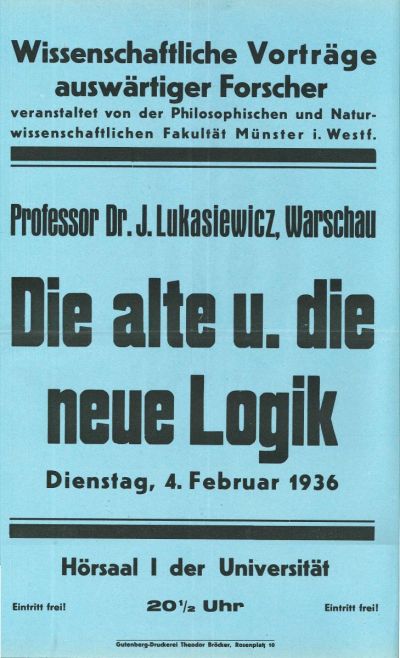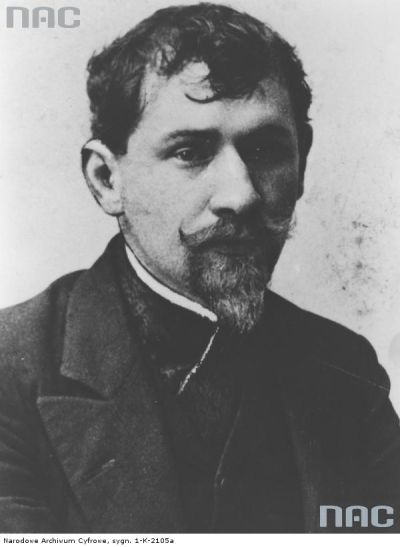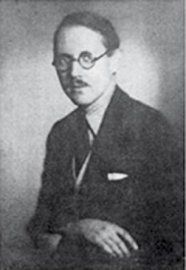Jan Łukasiewicz

During the war years Heinrich Scholz also worked to ensure the release of the Kraków theology professor Jan Salamucha from the concentration camp in Oranienburg, and the Kraków philosopher of science Joachim Metallmann from the camp in Buchenwald. Because of his commitment he was given a harsh reprimand by the then Minister of Science who threatened him with the sack.
Since Łukasiewicz’s wife belonged to the Polish aristocracy and he himself was a former Minister of Education and dignitary (amongst others he had been awarded the Order of Polonia Restituta) they belonged to a group of persons who were threatened with reparations, even execution after Poland was occupied by the Red Army in autumn 1943. As a result Łukasiewicz made preparations to flee from Poland in an emergency. As can be seen from an exchange of letters between Łukasiewicz and Scholz Łukasiewicz was planning to move to Switzerland. The first step along the way was to be a brief stay in Germany. Since it was necessary to fulfil a huge number of official conditions to be allowed entry into the country Scholz took over the necessary preparations and consulted the authorities and the Chief Inspector of the Police in Münster. On the 17th July 1944, only a few days after the start of the Warsaw Uprising, Jan and Regina Łukasiewicz left Warsaw for Münster, where they arrived on the following day. The attempt on Hitler’s life on 20th July 1944 put paid to their onward journey to Switzerland because they were now forbidden to leave the German Reich. The Łukasiewicz’s remained in Münster with the support of their mathematician friends, living in the cellar of a bombed out house until Jürgen von Kempski brought them to his country farmhouse in Hembsen (district of Höxter) on 1st January 1945. Here they were liberated by American troops in April 1945.
A few days later Łukasiewicz received an invitation from the well-known Polish General, Leon Berbecki, the commander of the former prisoner-of-war camp for Polish officers (Oflag VI B) in Dössel. Łukasiewicz accepted the invitation and remained in Hohenwepel in the vicinity of Dössel until October 1945 where he taught logic in a Polish school that had been provisionally set up in the former camp in Dössel. For Łukasiewicz it was clear that he would never return to Poland since as a philosopher he refused to propagate dialectical materialism at a communist university. After a brief stay in Brussels he decided to emigrate to Ireland On 4th March 1946 he arrived in Dublin were he was greeted by the Irish Foreign Minister and Head of Government. In autumn 1946 Łukasiewicz was appointed Professor of Mathematical Logic at the Royal Irish Academy where he taught until 1953. He died on the 13th February 1956 in Dublin and was buried in the city’s Glasnevin cemetery. Łukasiewicz’s legacy can be found in the library of Manchester University.
In his obituary for Łukasiewicz Heinrich Scholz wrote: “A humanist under the sign of ‚Cogito, ergo sum’ during a time of the most severe challenges.”
Sabine Krämer, January 2015
Further reading:
Elstrodt, Jürgen; Schmitz, Norbert: Geschichte der Mathematik an der Universität Münster, 1773-1945, Münster 2008 (Available online at: http://wwwmath.uni-muenster.de/historie/)
Schmidt am Busch, Hans-Christoph; Wehmeier, Kai F.: Heinrich Scholz und Jan Łukasiewicz, in : Forum für osteuropäische Ideen- und Zeitgeschichte, 11. Jg. 2007, pp. 107-125
Woleński, Jan: Mathematical Logic in Warsaw: 1918-1939, in: Andrzej Mostowski and Foundational Studies, ed. V. A. Ehrenfeucht et al., pp. 30-46.
A detailed account of Łukasiewicz’s writing including a bibliography can be found at: http://plato.stanford.edu/entries/lukasiewicz/








